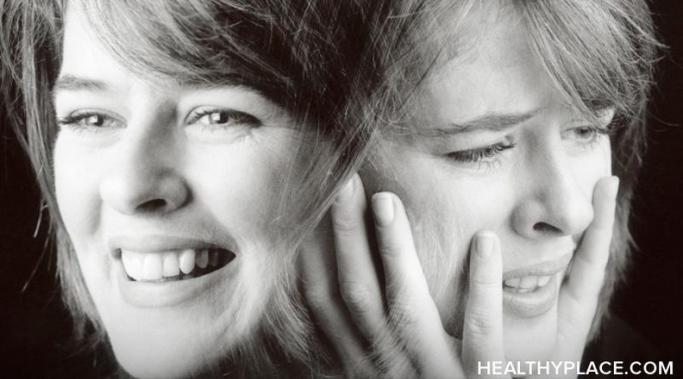Co-fronting with alternate personalities (alters) in dissociative identity disorder (DID) is something I only recently learned about. Sharing my mind with multiple identities, each with thoughts, feelings, and perspectives, lends itself to interesting conversations. These internal complexities can lead to co-fronting (when two or more alters are in control of the body at the same time) while significantly influencing how conversations unfold internally and externally, depending on the factors present at the time.
Living with DID
Every morning, I think about communicating with my alters. I embark on a journey within myself, stepping onto the internal bus where my alters await. With a roll call and a gentle reminder that I'm the sole driver, we set out on the day's path. Over the years, my alters, and I have traveled a winding road of unproductive, hostile communication, marked by fear and instability at the outset. But with time, understanding, and perseverance, we've learned to navigate this intricate terrain, fostering a dialog that supports our overall wellbeing by communicating with alters.
Routines and visual schedules can help a parent with dissociative identity disorder (DID). Growing up, my life was marked by unpredictability. I found myself perpetually in a hypervigilant fight-or-flight crisis mode. When I was diagnosed with dissociative identity disorder, I thought I would spend the rest of my life in this mode. When I found out I was going to be a parent, the idea of parenting the way I functioned for most of my life terrified me. Little did I know I would soon discover the power of routine and visual schedules as a parent with DID.
A critical aspect of dissociative identity disorder (DID) is the parts, or personalities (including young personalities), that are within the headspace of the individual with the condition. It took me years before I was finally able to identify my own parts, converse with them, and create a healthier place in my mind for them to exist, especially when I have been experiencing suicidal ideation. That being said, it isn’t impossible, even when it may feel like it while dealing with younger parts. (Note: This post contains a trigger warning.)
How does dissociative identity disorder (DID) affect self-care? When you hear self-care, you might think of a person practicing yoga, meditating or taking a bubble bath to relax and unwind. While it’s true that all of these activities can fall under the umbrella of self-care, it’s also worth going beyond the run-of-the-mill bubble bath once in a while to make sure everything is in check.
Does exercise help dissociative identity disorder (DID)? Exercise helps me live with DID by reducing anxiety and depression at least, so maybe it can help you, too.
Stim toys are a way of life for some of us with dissociative identity disorder (DID). If you’re living with a mental health condition such as DID, you might already know how important it is to have stim toys ready and waiting to be used whenever you need to get grounded. How does using stim toys help people with DID, and what is stimming?
What is it like to hear voices in dissociative identity disorder (DID)? Hearing voices, sometimes known as auditory hallucinations, and having DID does not mean one is psychotic or delusional. Hearing voices is actually common with the disorder, but it is also a complicated topic for which a one-size-fits-all answer does not work. However, we can still understand the phenomenon of hearing voices when we examine how our alters influence us.
I've found overstimulation is common with dissociative disorder. We with dissociative disorders have a "special" nervous system that is more reactive to stimuli. Our propensity towards dissociation and anxiety creates an ideal combination that is overwhelmed with excessive stimuli, also known as sensory overload, or overstimulation.
Is it necessary to dialogue with your parts in dissociative identity disorder? What are the benefits of dialoguing? What exactly does it mean to dialogue with your parts? In previous posts, I have written how important it is to communicate with your parts, or headmates as I call them. However, dialoguing with headmates is something more. What does dialoguing look like, and why should you try it?









